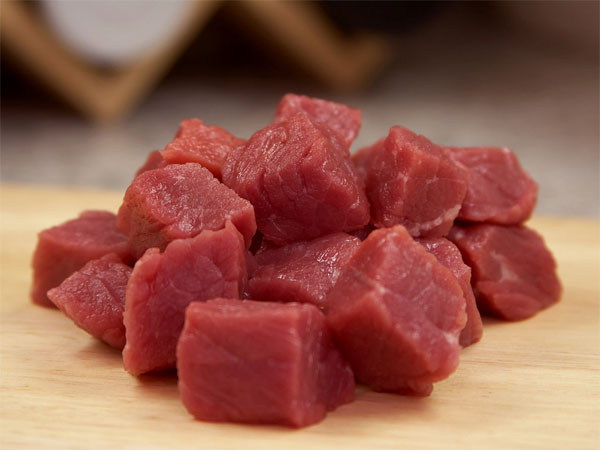Beef is the most harmful food for the environment
Beef is by far the most harmful protein for the environment due to animal husbandry activities. This is the conclusion from the research work of American scientists published in the Proceedings of the National Academy of Sciences on July 21.
According to the research of scientists at the Bard Academy in New York, Yale University in Connecticut and Weizmann Institute of Science in Rehovot, Israel, the area of land needed to produce beef is 28 times larger than the land area. On average, other foods include milk, eggs, poultry or pork.
Raising a cattle for meat also requires 11 times more irrigation water than other livestock. Cows also produce more environmentally harmful waste; Greenhouse gas emissions and reactive nitrogen from cow waste are 5 and 6 times higher than other food animals.

Photo: spiceopolis
According to the authors of the study, the livestock industry has "contributed" to a fifth of global greenhouse gas emissions and polluted the water and affected the ecosystem. ; In particular, the level of environmental pollution of poultry products, pork, eggs and cow's milk is only equivalent and the average beef causes pollution up to 10 times higher than the above. Scientists do not calculate the environmental impact of fish due to inadequate data and this food only accounts for 5% of the American diet.
The study is based on statistics for 10 years from 2000 on land, irrigation and fertilizer sources of US ministries. From official data, scientists calculate the amount of resources needed to produce meat from each type of cattle and poultry.
To bring 1 calorie to humans, 10 calories need to be loaded into poultry and pigs, while this figure is nearly 40 calories in cattle. Meanwhile, the beef industry of the US beef industry, which has a much lower rate of emissions of greenhouse gases than other countries.
This is not the first study of the beef industry's enormous harm to the environment. In fact, beef currently contributes 7% of calories in American diets, the study authors recommend the most effective method of minimizing environmental harm is to reduce beef consumption.
However, many scientists also believe that abandoning beef is not the best option, but it is necessary to adopt a method of breeding to minimize waste that pollutes cows such as grazing on pastures and reducing farming. by industrial foods.
- Beef eat grass better for you?
- Can a person survive only by eating beef?
- Red wine and beef - an effective combination
- How to detect 'beef' transformed from pig and buffalo
- Chinese cloned beef: Food or disaster for the environment?
- The reason why 100% Kobe beef you are eating in Vietnam is fake
- Why are beef steaks glowing in rainbow colors?
- The surprising fact about the piece of meat for 15 years is still sold for 73 million
- The most expensive process for freezing beef in the world
- How to distinguish real dry beef and fake super dry beef
- Mistake when eating beef many people have
- Discover the world's best beef that is more expensive than Kobe beef
 Is the magnetic North Pole shift dangerous to humanity?
Is the magnetic North Pole shift dangerous to humanity? Washington legalizes the recycling of human bodies into fertilizer
Washington legalizes the recycling of human bodies into fertilizer Lightning stone - the mysterious guest
Lightning stone - the mysterious guest Stunned by the mysterious sunset, strange appearance
Stunned by the mysterious sunset, strange appearance